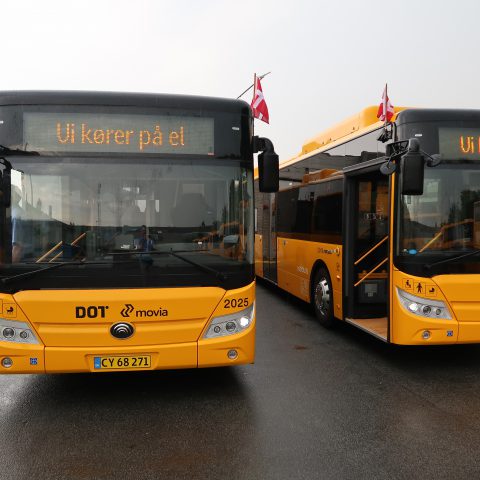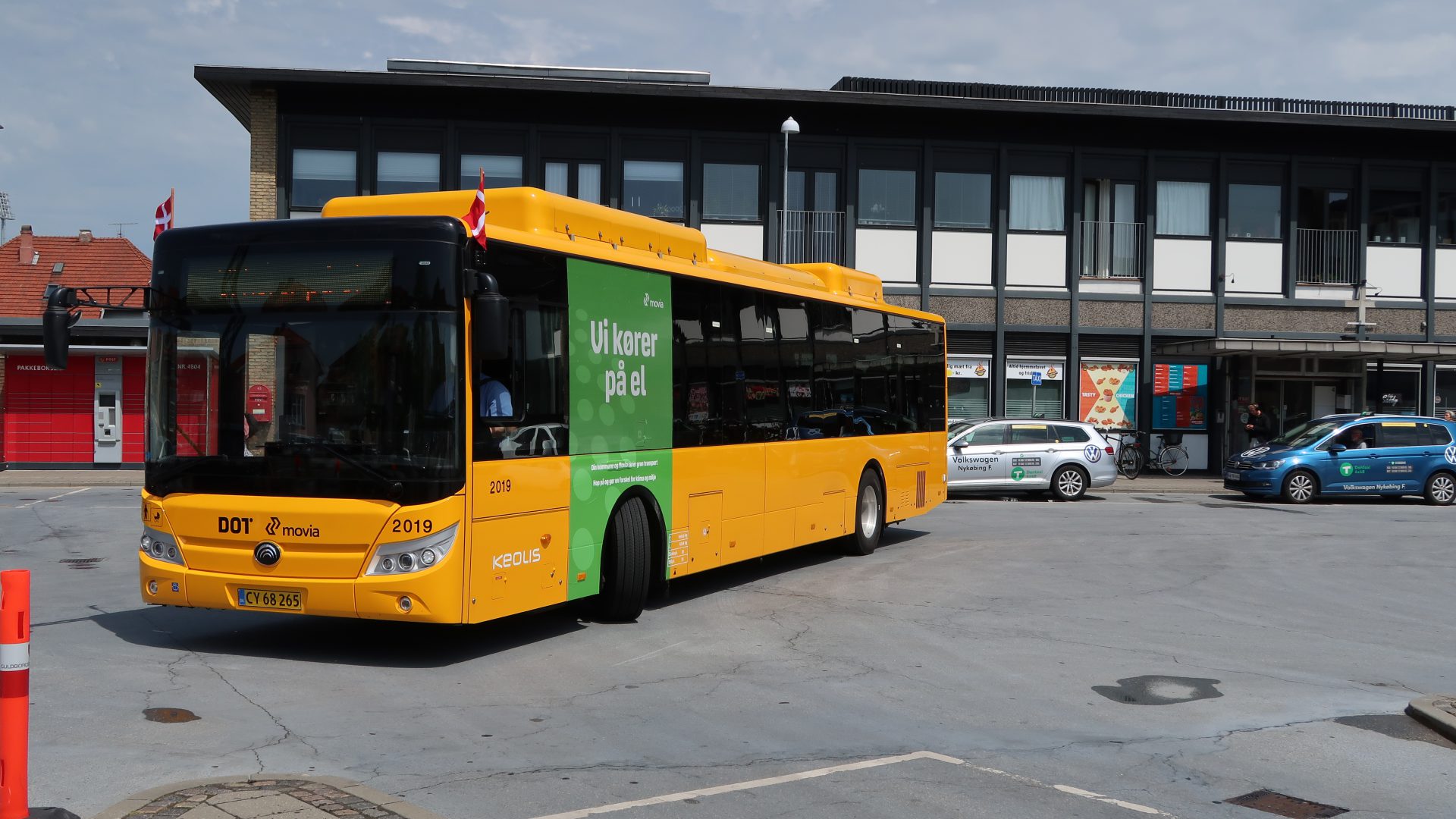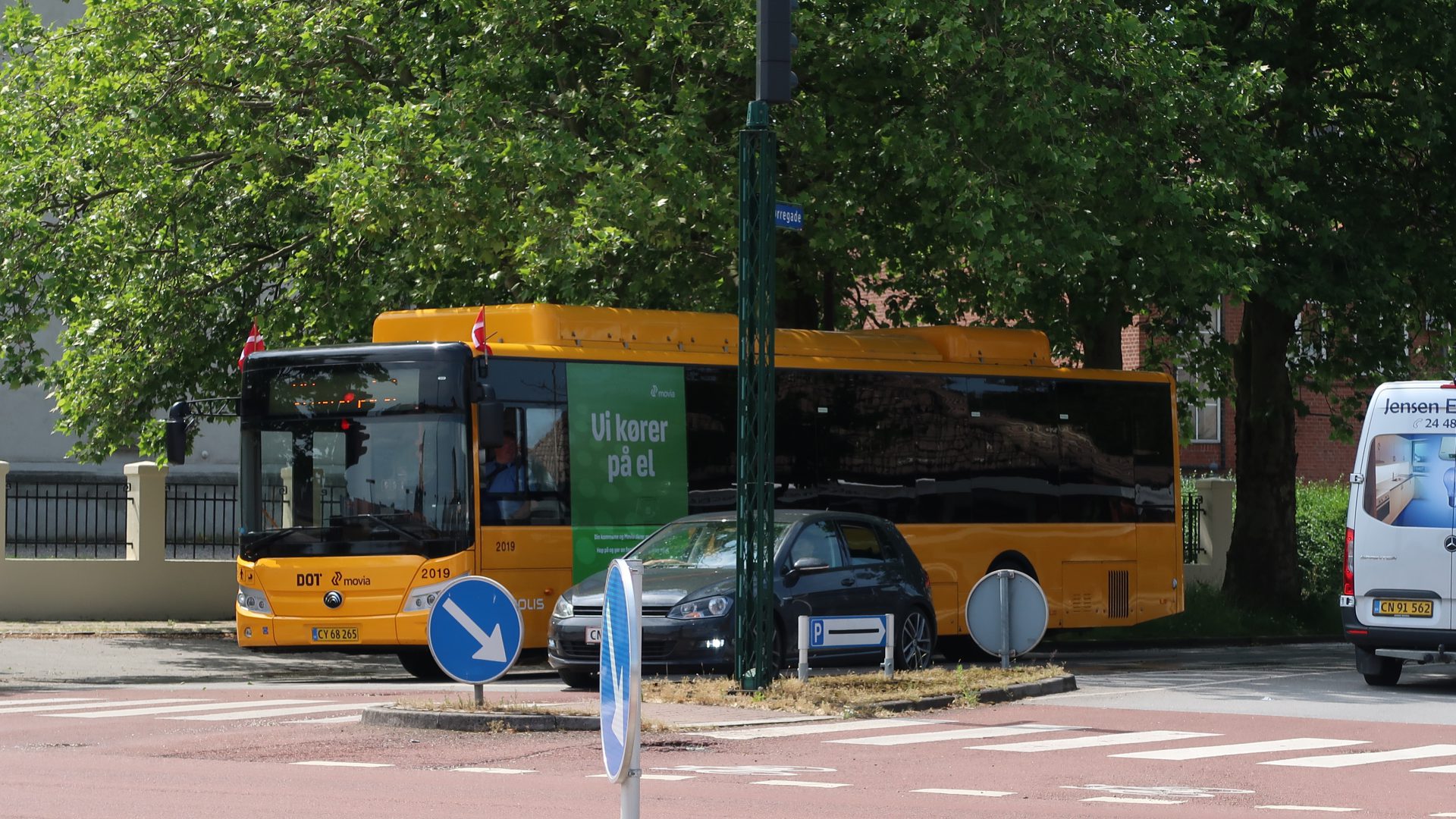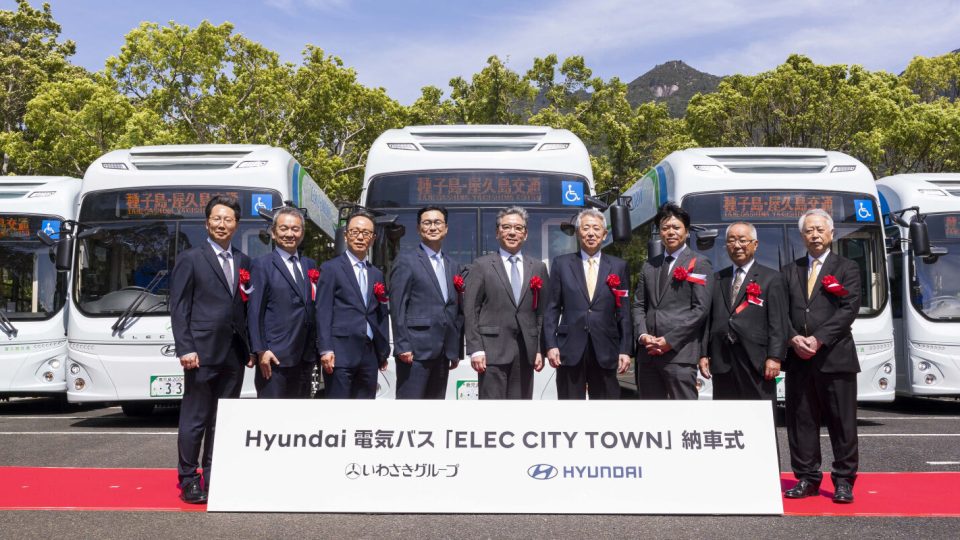Keolis launches 42 Yutong e-buses in Copenhagen’s region (Denmark)
On 27 June 2021, Keolis’ subsidiary in Denmark, Keolis Danmark began operating and maintaining the Greater Copenhagen region’s bus network. This ten-year contract with a possible two-year extension is expected to generate a total income of more than €100 million. The contract was awarded in February 2020 by Movia, East Denmark’s Public Transport Authority. The […]

On 27 June 2021, Keolis’ subsidiary in Denmark, Keolis Danmark began operating and maintaining the Greater Copenhagen region’s bus network. This ten-year contract with a possible two-year extension is expected to generate a total income of more than €100 million.
The contract was awarded in February 2020 by Movia, East Denmark’s Public Transport Authority. The network’s fleet of 59 buses features 42 electric buses that will save more than 4,500 tonnes of CO2 emissions per year, according to Keolis’ calculations.
42 e-buses in Greater Copenhagen region
This launch comes after the recent commissioning of 20 fully electric buses which began running on the Odense network in May 2021. These zero-emission buses – again ordered with Chinese bus manufacturer Yutong – will save around 1,020 tonnes of CO2 emissions annually. The contract with Danish transport authority FynBus was extended in April 2020 by a further four years, from August 2023 to August 2027. It is expected to generate total revenue of some €75 million.
In April 2020, Public Transport Authority Movia awarded Keolis a ten-year contract (with a two-year extension option) to operate and maintain the Greater Copenhagen region bus network. The network was launched on 27 June 2021 and includes 24 routes. It serves five towns on Zealand, the largest and most populous of Denmark’s islands with 2.5 million inhabitants, as well as the island of Falster.
Depots’ reorganization is underway
The fleet comprises 59 buses, 42 of which are fully electric. The 5.9 million kilometres the partially electric fleet is expected to cover per year will translate into savings of some 4,500 tonnes of CO2 annually. For the launch, a new depot has been built in the south of the island (in Korsør), and three other depots have been equipped with the infrastructure needed to recharge the electric buses simultaneously. Night-time charging takes six hours, providing the vehicles with a range of around 350 km, depending on operating conditions, Keolis says.
In addition, the 160 drivers and maintenance personnel have all received special training focusing on safety, eco-driving and recharging, as well as preventive and corrective maintenance so they can operate and maintain these new buses.
In Odense, the existing depot has been equipped with electric infrastructure so the buses can be recharged during the night. Keolis’ 230 drivers and 12 members of the maintenance personnel have also received training on these new vehicles.
These electric buses will serve Denmark’s third largest city, home to over 180,000 residents. The urban network is made up of ten routes which will be adapted to provide optimum connectivity with Odense’s tramway network, which is currently under construction.










